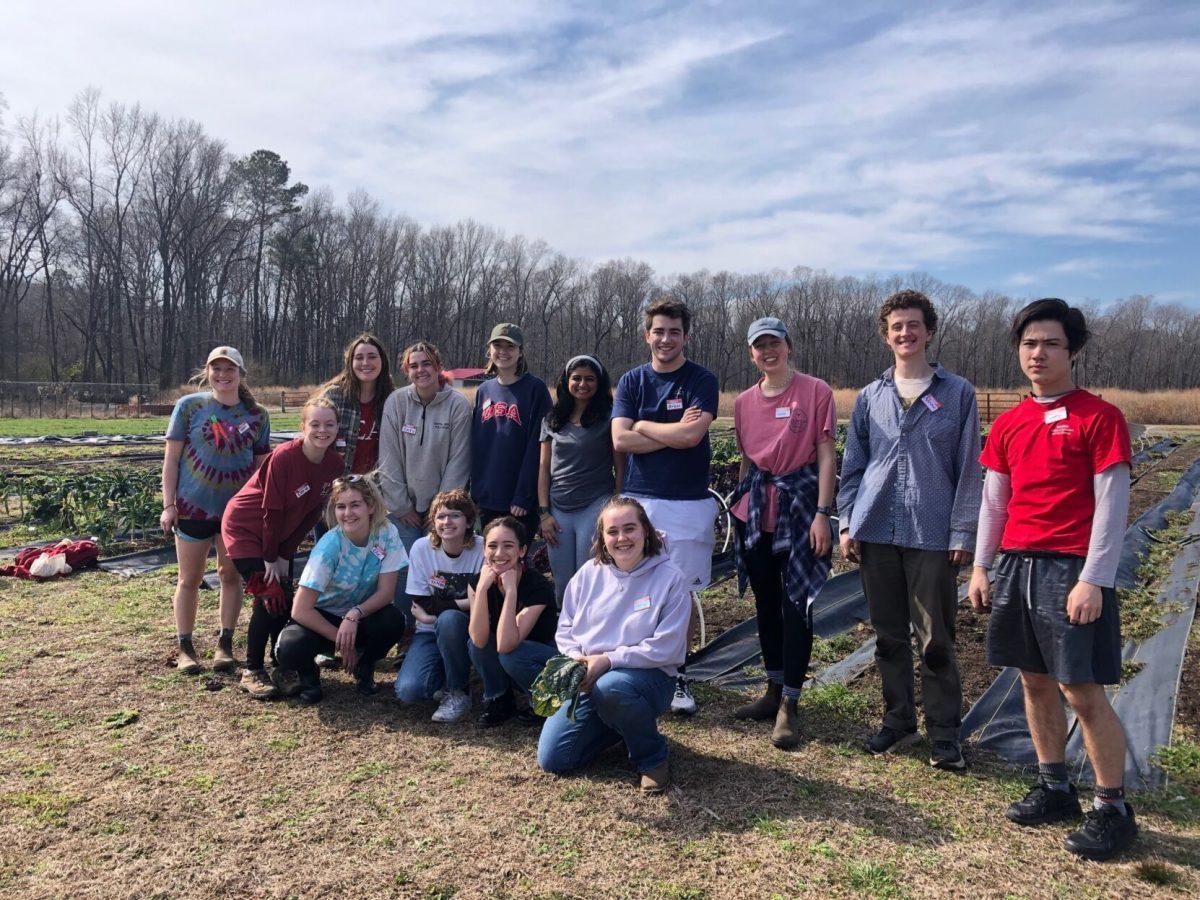Agroecology club promotes sustainability and service
Jameson Wolf, Assistant Culture Editor
The agroecology club is a student organization focused on service, community building and promoting sustainable agriculture.
According to president of the club Adrian Evans, a fourth-year studying agroecology with a concentration in research and production, agroecology involves examining agriculture through three pillars: environmental soundness, economic viability and social justice. It looks at agriculture as a system that positions science as one part of a larger social, economic and environmental context. At NC State, students studying agroecology look at everything from the details of plant biology and horticulture to the broad scope of food systems.
The agroecology club seeks to take these tenets beyond the classroom by providing additional hands-on experience and opportunities to connect with professionals working in relevant fields.
“As a club in the past we’re really just serving as a place for students within agroecology to meet one another and make relationships that may last,” Evans said. “Doing professional development and also just having fun, trying to enjoy it. And just loving that we have this shared interest in this subject.”
One of the club’s regular forms of service is participating in volunteer workdays at NC State’s Agroecology Education Farm which grows crops year-round to distribute to dining halls and donate to food shuttles. The farm gives students the opportunity to see their conceptual learning in action. Volunteers have a range of jobs on workdays.
“[Farm volunteer days] are almost always going to include weeding,” said Leah Guercio, a third-year studying agroecology and Spanish and secretary of the club. “The manual labor is just a huge part of it, but it depends on the season. You have the option to do as much or as little as you want to, if it’s composting or shoveling mulch or harvesting tomatoes.”
Farm volunteer days are held twice a month and open to all.
In addition to farm volunteering, the club seeks to build other community connections through service. In past years the club has worked with the Episcopal Farmworkers Ministry, an advocacy group that supports the needs of farm workers and immigrant families in eastern North Carolina. The club worked with the Episcopal Farmworkers women’s group to preserve medicinal knowledge passed down through family lines.
“For my administration we really want to focus on doing more service work,” Evans said. “Getting students out into the community and trying to get them more involved with hands-on projects.”
The focus on service highlights the third tenet of agroecology — agriculture should be socially just. According to Charlotte Yancey, a fourth-year studying agroecology with a concentration in urban horticulture and vice president of the club, the social justice tenet is an often overlooked aspect of the discipline.
“I think people understand the environmentally sound part, maybe even the economically viable part, but people don’t really understand the social justice part,” Yancey said. “And that would be something that I want everyone to recognize, that it’s not just about taking care of the earth, as important as that is. It’s also about making sure everybody is fed and has access to the earth in the same way and access to the fruits of the earth in the same way.”
Having missed in-person education throughout her first several years of her program, Yancey finds this aspect of the club helpful.
“It’s a nice reminder that there are jobs within this field,” Yancey said. “It’s [helpful] to be able to talk to a bunch of different people who all have the same niche focused interest, but everybody wants to do something completely different with it. Being able to talk to people and hear their ideas of, ‘you could do that with this degree,’ … and also seeing our friends graduate and go on and do other stuff, too. You’re like, ‘okay, they’re making it work.’”
The social aspect of the club is also an important factor Evans hopes to maintain throughout the year.
“I want the agroecology club to be informal,” Evans said. “Let’s get together and talk and get to know each other. I don’t want it to be like you have to be here. … I think we have more laughs than any other club combined.”
Follow @ncsu_agroecology on Instagram to stay up to date on club proceedings and volunteer days.













